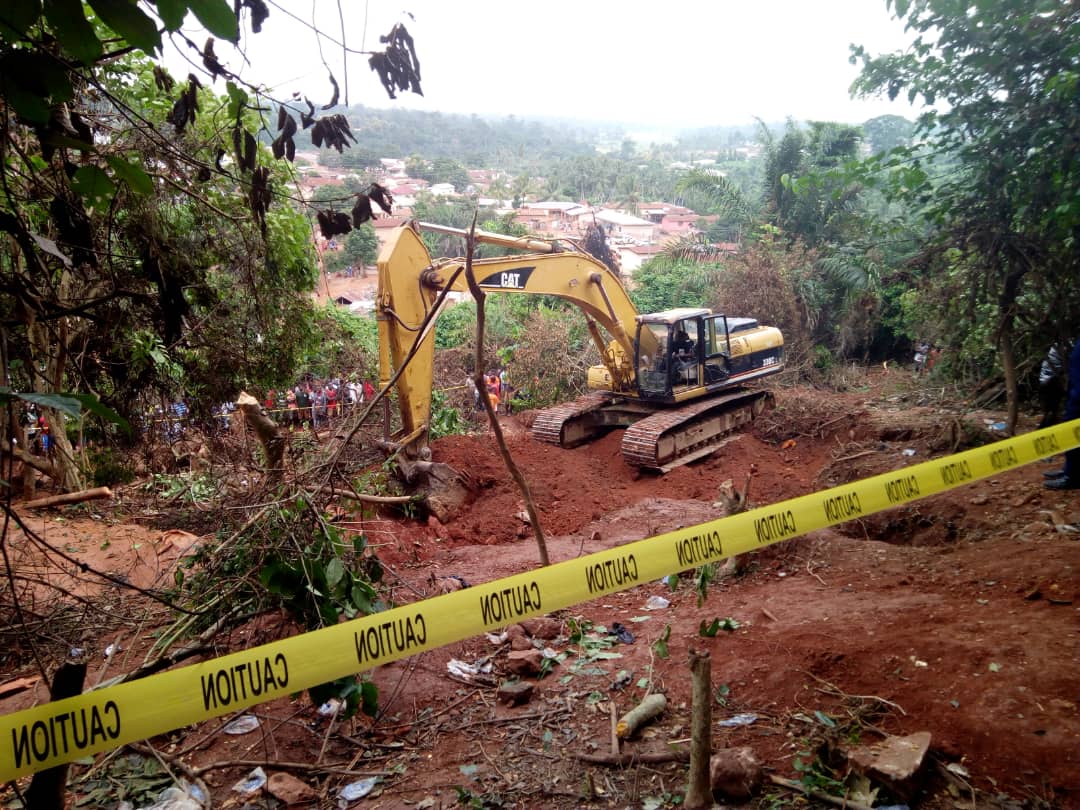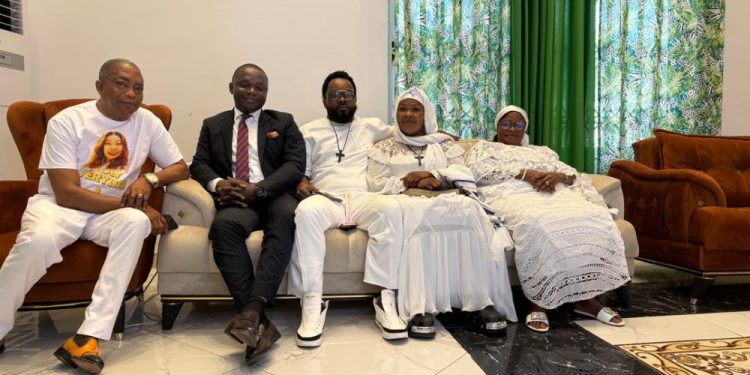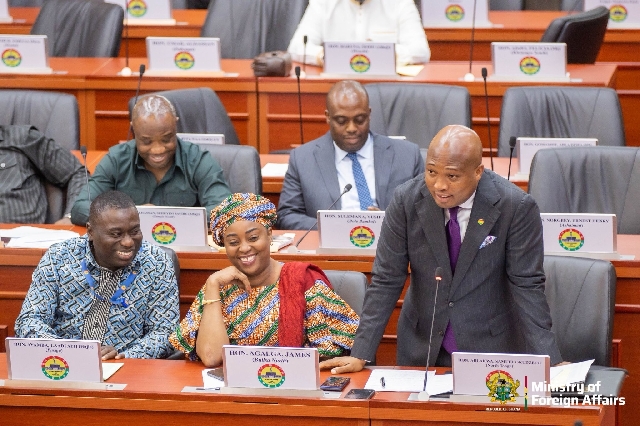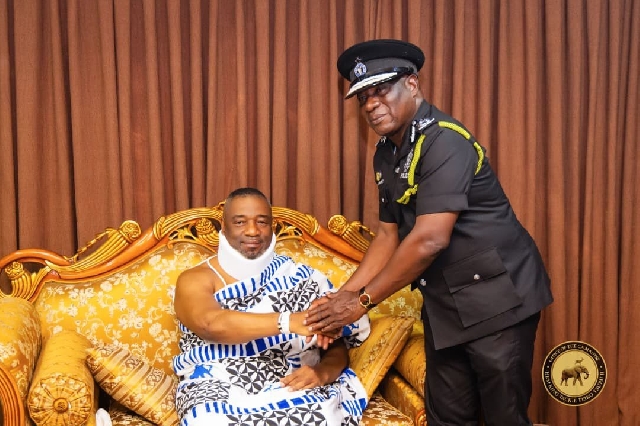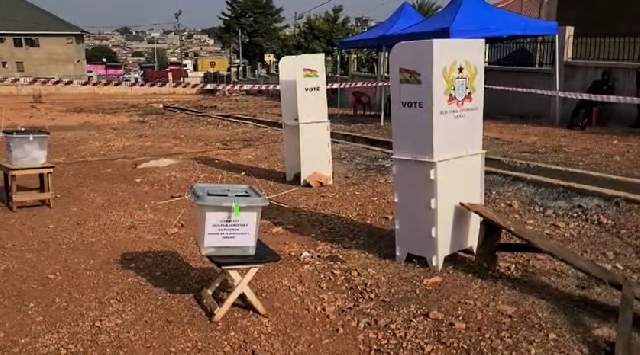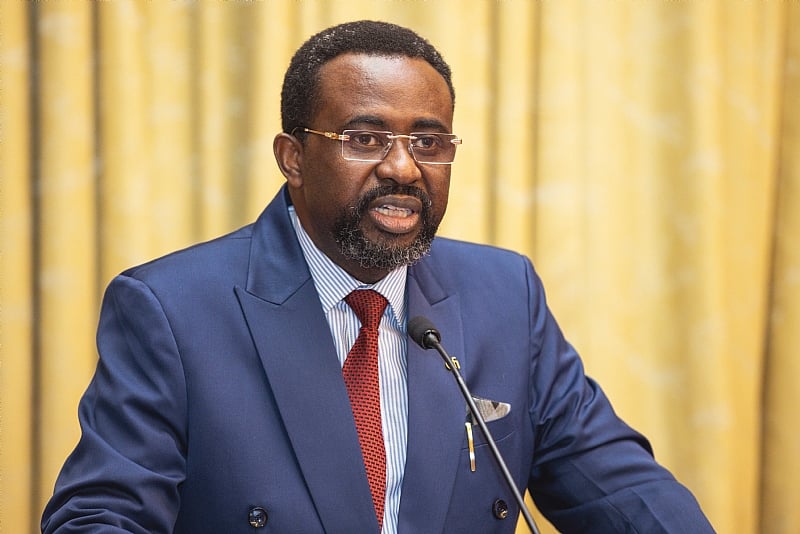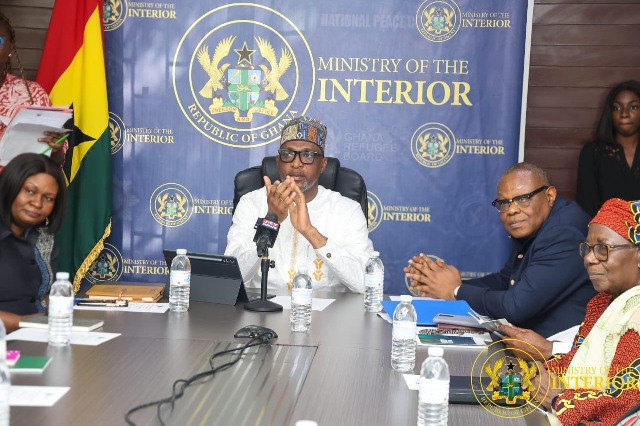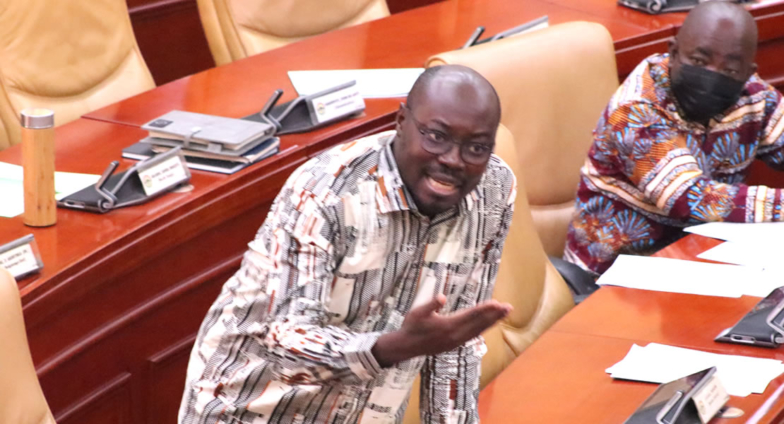CEPIL concludes training of 50 paralegals for 2 regions in the Upper East
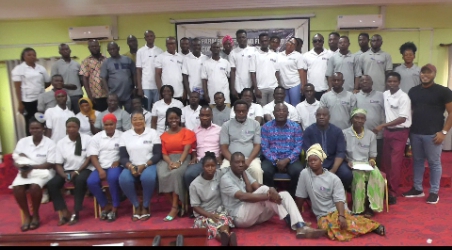
A Rights-based law firm that provides free legal representation and service to communities and other indigenes who cannot afford legal services that is a non-profitable organization headed by the Executive Director Center for Public Interest Law (CEPIL) Lawyer. Augustine Niber has concluded training for 50 paralegals in the Upper East Region. Engaging the media during the training workshop, Lawyer Niber said, they have been providing training on Human Rights and para-legalism to communities. According to him, the present program that they undertake here in the region is a paralegal training program that started 2 years ago with support from the FORD Foundation in building the capacity of community groups, opinion leaders, and community representatives from Upper East and Upper West on mining-related issues for person and district where mining is currently taking place. He stated that, “The basic requirement for the program is to train these paralegals to serve as vocal persons in communities and they are to play a kind of liaison role between their communities and other Civil Society Organizations and try as much as they can to serve as the voice of a community in bringing up mining-related issues and generally equip them with some basic legal knowledge that will support them as vocal persons in their communities and also provide them with some level of cost-effective to basic legal services to their communities”. The 50 paralegals comprise two regions and 5 districts Talensi, Nabdam, and Zebilla in the Upper East Region, and participants from the Nadowli and Wa East districts in the Upper West Region. Meanwhile, throwing more light on the training workshop, Laywer Niber explained, that one must complete the three modules before he or she is certified, “There are three modules for the training before one can be certified as a paralegal. The first module took place in Tamale in 2022, and the second module took place in the Upper West Region and what is happening in Bolga is the Third and last module and after which will certify them. The director explained He added, that the response they have gotten from those they have trained is already positive, because they have indicated the knowledge they have acquired from issues of mining including the right they were educated on. He believes, they now approach issues based on informed position and based on the advancement of what they have learned. “They are expected to create the awareness in their communities from the training they have had and also to enable demand respect for their rights and protect their rights within the context of mining activities in their communities”. However, asking what the next step will be for CEPIL, the Executive Director said, they will be doing a follow-up to ascertain the extent to which the trained paralegals are using the knowledge in their communities and also add that, when necessary, they may be organizing refresher programs for new things might come up. Chairman Savannah Research and Advocacy Network (SRAN) Mr. Nyeya Yen expressed satisfaction with the education provided so far by the Center for Public Interest Law (CEPIL) to persons from mining communities in the northern parts of the country. Mr. Nyeya, is optimistic that the training will produce good results, especially in tackling and managing issues that could result in conflict and as well as help community member understand their rights “Sometimes, the mining companies enter a community without following due process. Sometimes, some of these mining companies walk in and start mining and sometimes they walk into the community and give just a fowl to the landowners for them to do their sacrifices to enable start mining. Sometimes, what they called community entry, they may just meet with the District Chief Executive (DCE) and probably talk to the chiefs and start mining without talking to the community but as an activist in the community you should be able to let them do the right thing”. He stressed “So, we expect these categories of people who are trained as paralegals to help engage the community, engage the chiefs, and engage the Tindanas to guarantee a better deal”. Chief Operating Officer of TAMA Foundation Jonathan Adabre Akatue said, all the 50 activists have been trained on, issues of compensation, resettlement, environmental safety, and more. According to him, the importance of this training is that, it will guide communities, citizens in mining communities on what they need to do when mining is taking place, the responsibility of the mining company, the responsibility of the state regulator which is the Mineral Commission, the responsibility of the Assembly, the responsibility of the Environmental Protection Agency and the responsibility of many other actors who play a role in mining. He was satisfied that so far, the results from the field are encouraging and the majority of them have taken steps to deal with resettlement discussions, to deal with compensation matters and it is for the good of all of us as citizens of this nation. However, before awarding certificates to the trainees, the Executive Director of CEPIL cautioned all qualified candidates not to misuse their opportunity by using the certificate acquired from the training to engage in any form of illegality. If I hear anything, I will be the first to report you to the police and I will be the first to testify on the case. As I said, you are to use this knowledge to benefit your community. Don’t go and use it to solicit funds. If I hear that you have collected money to take or provide any kind of advice, I will be the first to report you to the police and am serious about it. He warned “I have not trained you to use your knowledge to cheat your community”. On behalf of the 50 trained paralegals, Mr. Sapak of SRAN extended their gratitude to the staff and the Executive Director Center for Public Interest Law (CEPIL) Lawyer. Augustine Niber for taking through mining law that will help guide them in their various
Upper East NDC leadership are late commas, reasons why they can’t get development for the region

If you are wondering why the debate about the NDC in the Upper East Region not bringing development still exists in the minds of some residents of the region, don’t look any further. Apexnewsgh.com report Mr. Yen Nyeya has revealed, that those seen as NDC leadership in the Upper East Region are late commas in the party, they are not seen as parts and parcels of the party. The reason they are not given attention by the party when it comes to sharing the national cake for the region’s development. Mr. Nyeya made the pronouncement in an exclusive interview with Ngamegbulam Chidozie Stephen of Apexnewsgh.com on Friday, February 3, 2023. Giving a brief history of what happened in the past, he said Upper West is well recognized by the NDC because when former President Jerry J. Rawlings needed an alternative, he found Upper West as a source to recruit and counterpart people in the Upper East Region and that is why we have the Alban Kingsford Sumana Bagbin’s, the present Speaker, you had the late Sali and others who were brought into the regime and in the process of development, any little development is sent there. So, the Upper Easterners who later joined the PNDC or the NDC were late commas and you can see, that they don’t have that strength or control. Supposing if I and Nicholas Atampugre and Co had stayed, we may have been able to extract resources. The Cletus Avoka and Mahama Ayariga, they came later. So, because they were late commas, they were not able to gain that access because is about those whose voices are heard. But unfortunately, they are not seen as part of the various government that has ruled in the NDC and NPP, the leadership are not seen as part and parcel of those parties, they are not seen as owners. Hon. Asaga and co were Ministers but they were seen as late commas. Mr. Nyeya believes the people he describes as late commas in the NDC didn’t have much influence to extract development for the region. “So, they didn’t have that much influence and even in terms of a new colonial development, they could not access the little resources that were there to the region and that is why up to now, we don’t have an Airport”. He told Apexnewsgh.com
Read one of the interesting reasons why the Upper East Region was and still underdeveloped

A well-known social activist Mr. Yen Nyeya has revealed, that one of the top-notch reasons why the north and more especially Upper East Region is underdeveloped was as a result of the activities of the colonial authorities. Apexnewsgh.com report Mr. Nyeya made the interesting revelation during an exclusive interview with Ngamegbulam Chidozie Stephen of Apexnewsgh.com on Friday, February 3, 2023. Answering a question about the underdevelopment bedeviling the Upper East region, the social activist said: “When it comes to the Upper East Region or the north in particular, what happened is that during the colonial rule, the north specifically was created as a reservoir of labour. That meant that the colonial authorities by time realized that they were numerous natural resources. So, the idea was to preserve the north as a labour force to go down to the south and provide labour for the south, so that the colonial authorities will extract as much wealth as possible. So, the north was deliberately underdeveloped and that is why up till now, you would find out that a lot of people from the north especially the Upper East Region go down to the south to work. He explained He further added, that region only witnessed some developmental projects after independence, “we were lucky that we had Dr. Kwame Nkrumah who was much more developmental and he brought about Free Education, Free Medical Health and we have even found out that he even set up factories in this region. We had the Meat Factory, we had the Tomatoes Factory, we had the Rice Mill and he made Bolgatanga the capital because incidentally, Bolgatanga is the center of the town”. Unfortunately for us, there was a coup on 24th February 1966 and Nkrumah’s big projects stopped until Achampong came. Mr. Nyeya to Apexnewsgh.com For publication please kindly contact us on +233256336062 or Email apexnewsgh@gmail.com

